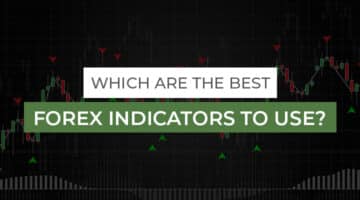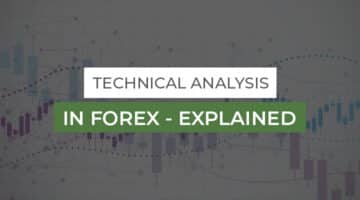Forex Trading in Kenya

In this article
Like many African countries, Kenya has recently turned its attention towards forex trading. Many young Kenyan traders are looking to start their trading venture but don’t where to start.
Don’t fret, as, in this guide, we are going to tell you all the details you need to know about forex trading in Kenya. Hopefully, at the end of this guide, you’ll familiarize yourself with the nitty-gritty of forex trading.
So, let’s get started!
Overview
Kenya has the third-largest economy in Sub-Saharan Africa, behind only Nigeria and South Africa, and is one of Africa’s most efficient economies. Kenya is regarded as the East African hub for commerce, finance, and technology.
The young and tech-savvy population is eager to push the country’s economy forward, and several foreign companies have established regional headquarters in Kenya. Forex trading in Kenya is rapidly growing in popularity, owing to low capital requirements.
The good news is that Kenya strengthened its control of local forex businesses in 2017 in order to make the market safer for retail traders.
M-Pesa, a mobile phone-based money transfer and micro-financing service introduced in 2007 by UK-based Vodafone and Kenyan Safaricom further facilitate access to the financial system for the unbanked. By 2010, it had become the most profitable mobile-phone-based financial service in Kenya.
Forex trading is becoming increasingly common in Kenya, especially on mobile phones. After the successful launch of M-Pesa, which linked millions of Kenyans who were previously unbanked to the formal financial system, the trend has accelerated.
Although financial pyramid schemes and other scams do exist in Kenya, as in most frontier markets, the Central Bank of Kenya and the Capital Markets Authority (CMA) are prepared to ensure a trustworthy environment. It establishes Kenya as a promising growth sector.
Getting started
Because of Kenya’s significant business potential and demographics, online forex brokers who saw an opportunity in the country set up offices in Lagos and other Kenyan cities. If you’re new to trading, forex trading in Kenya is a good place to start.
All you need is:
- Acquire a relatively new internet-capable gadget, such as a smartphone, tablet, or computer.
- Locate an online forex broker who welcomes Kenyan clients.
- Open an account with that broker for forex trading.
- Make a deposit using a payment form that the broker accepts.
What do you need to know as a beginner Kenyan trader?
1. Basics
Forex trading is the practice of trading various currency pairs in order to benefit from the difference in the price of the currency pair as a result of market movements.
During your journey as a forex trader, you’ll come across many terminologies, so let’s define them:
Pip
A pip is the smallest decimal value in a forex pair. It is the last decimal in the quote currency.
Let’s say the value of EUR/USD is 1.2100, then the last decimal value in it is the pip. In this case, zero is the last value. The movement from 1.2100 to 1.2101 is referred to as one pip.
Leverage
Leverage enables you to gain exposure in the financial markets with a lower initial upfront investment, known as margin. This is successful because it leaves the extra money for the investor to experiment with other investment opportunities or to keep for personal use. CFD brokers provide leverage.
Bid/ask price
A bid price represents a maximum price at which a trader or a broker is willing to buy a currency pair. The ask price signifies the minimum price at which a trader or broker is willing to sell a forex pair.
Spread
Forex brokers charge fees by means of spread, which is the difference between the buying and the selling prices.
Forex lot sizes
In the forex market, lot size suggests a measure of a quantity of a currency pair that is suitable for buying and selling.
A lot is a unit that measures a transaction amount.
When you place orders on your trading platform, orders are placed in sizes quoted in lots.
There are three lot sizes in forex:
- Standard Lot – 100,000 units
- Mini Lot – 10,000 units
- Micro Lot – 1,000 units
2. How does the forex market work?
The forex market is the most liquid market in the world, with the largest daily traded volume of any market or exchange. The Foreign Exchange Market has a daily value of more than $5 trillion.
Aside from its size, the market never closes! It is open almost 24 hours a day, seven days a week.
The forex market is open 24 hours a day, five days a week, with the exception of the weekend.
Currencies are often traded in pairs, such as the EUR/USD, and traders take positions based on their price change assumptions.
Currency price changes are calculated in pips, and traders use pips to determine trading positions.
3. Security
Since anyone with a computer can now start trading online, security has become one of their primary concerns.
Because the forex market has become much more open, you want to ensure that everything goes as expected so that you can trade without worry. Every trader understands that security should be one of your top priorities.
So, make sure to go through the brokers’ website before opening your trading account. If you see anything shady, refrain from opening an account with that broker.
4. Payment options
On the Kenyan Forex trading market, traders usually have access to a variety of payment options. M-Pesa, a mobile phone-based money transfer service launched in 2007, is one of the most common in Kenya and other African countries. If you are comfortable with that payment system and do not want to move, there are many Kenya forex brokers that accept M-Pesa.
Forex trading example in Kenya
Consider the Kenyan Shilling (KES) against the US Dollar (USD). One US dollar equals one hundred Kenyan shillings. As a result, if we buy $1,000 USD, we would pay 100,000 KES. Assume the value of KES rises in the market. In that case, we would pay less KES for each USD bought. That also implies that for every USD sold, you will receive more KES than you charged. The difference between the KES charged and the KES earned is the profit you make.
How to open a forex trading account in Kenya?
You can open an account by choosing a regulated forex broker and open an account with that broker. We’ll talk about forex regulations in Kenya later.
In general, the steps are the same. You must fill out your ‘Account Records’ and Financial Sufficiency information. Then, to complete the verification, you must apply your two KYC documents, namely ID proof, and address proof.
Brokers with live accounts may either be market makers or have DMA (Direct Market Access), with DMA brokers being either ECN or STP. ECN (Electronic Communications Network brokers) are platforms where investors can communicate directly to other investors in the forex market, and the fee is determined based on the amount exchanged by clients.
STP, or Straight Through Processing, refers to the process by which a broker transfers trades to liquidity providers for execution and provides access to interbank market structure. While having DMA gives you greater access to markets with higher rewards and risks, finding true brokers who offer DMA is difficult and time-consuming.
If you are a beginner, you can only use regular spread accounts if the broker provides STP accounts. Expert traders can open an ECN account. These have low fees, but a commission is paid based on the number of trading lots.
Kenyan forex regulations
The Capital Markets Authority (CMA) primarily regulates the Kenyan forex market, though the Central Bank of Kenya can enact regulations for the CMA to implement.
To tighten regulation, the CMA introduced new rules requiring all foreign brokers to apply for a license, confirm minimum capital requirements, and file quarterly and annual reports with the regulator. It is yet another indication of the expansion of forex trading in Kenya.
Since 1989, the CMA has controlled Forex brokers in Kenya. It issues three types of licenses: Dealing Foreign Exchange Broker, Non-Dealing Foreign Exchange Broker, and Money Manager.
The CMA was named Africa’s Most Innovative Capital Markets Regulator in 2019.
How much capital do you need to start trading in Kenya?
When it comes to opening accounts with brokers, many of them have a plethora of options. A minimum account balance is required for both of these accounts.
Many brokers usually offer a $5 minimum, but we suggest opening a trading account with a minimum of $500. This ensures that a sizable position can be taken in trading and a decent profit can be made on market movements.
However, keep in mind that a position is dependent on the balance held and the leverage provided by the broker. It is recommended that a day trader not risk more than 1% of their forex account on a single trade. That is, if you have $500 in your account, you should not risk more than $5 per trade.
Trading positions are also affected by the lot size chosen. As previously mentioned, you can trade in Standard lots (100,000 units), Mini lots (10,000 units), or Micro lots (1000 units).
If USD is listed second in a currency pair, such as EUR/USD or AUD/USD, and your account is funded in USD, the pip per lot type value is set. As a result, the value of one pip for a Micro, Mini, and Standard lot is $0.1, $1, and $10, respectively. Knowing these details is super beneficial because it helps in assessing the amount of risk that can be tolerated and when to enter the trade.
Suppose you have $500 in our account and would like to trade on mini lots for EUR/USD, currently at 1.2000. The broker provides leverage of 100:1 and 0.4 pips in a spread for the EUR/USD pair. One mini lot of EUR/USD can be bought with $120 of capital (1 mini lot = 10,000 units x $1.2000 = $12000 / 100 leverage = $120).
With $500 in an account, you take up a position of 40000 units or four Mini lots of EUR/USD pair, resulting in total capital invested be $480. With a positive movement of one pip in EUR/USD, you would gain $1 per lot. Hence, the total gain on our position would be $4.
Starting with a reasonable amount like $500 gives you the flexibility to trade, as trading with very low capital and using high leverage is very risky.
Generally, most liquid forex pairs like EUR/USD or GBP/USD change in the range of 100 pips. So, you can make a good return if you invest wisely with low leverage. However, you should always keep your risk appetite in mind before taking the plunge.
Best forex trading platforms for Kenyan traders
The best forex trading platforms for Kenyan traders are those offered through forex brokers. The MT4 platform is available at every broker, while some brokers also provide the MetaTrader 5 and cTrader platforms.
What is the best time to trade forex as Kenyan?
The best time to trade forex in Kenya is between 11 a.m. and 5 p.m. when both the London and New York sessions are active and overlap. During these trading hours, volatility will be at its peak.
While you can trade at any time, being a night owl will be expensive for the majority of traders.
The best time for trading forex in Kenya according to four major forex sessions is:
- 11 p.m. – Sydney session
- 3 a.m. – Tokyo session
- 11 a.m. – London session
- 3 p.m. – New York Session
If you can wake up during the overlapping sessions between Tokyo and London or London and New York, you can take advantage of the most liquid and volatile sessions.
Is forex trading legal in Kenya?
Forex trading is legal in Kenya and governed by the country’s financial regulator, the Capital Markets Authority (CMA). It was founded under the Capital Markets Act of 1989. The CMA’s mission is to control and strengthen the security of Kenya’s capital market for domestic investors.
Brokers providing services in Kenya are required by law to be regulated by the CMA, which was done to protect investors from fraudulent schemes and misconduct. In 2017, tighter regulations were enacted, requiring the CMA to strictly monitor Kenya’s online forex market. Companies are required to register under the Capital Markets (Online Foreign Exchange Trading) Regulation 2017.
While brokers offering FX trading and CFDs must be registered with the CMA and have a local office in Kenya in order for local citizens to trade in a secure environment.
Forex trading strategies for Kenyan traders
After you’ve completed all of the above measures, you’ll have a funded online brokerage account that allows you to trade forex from Kenya. To increase your chances of success, create a trading plan that includes a successful trading strategy.
Depending on your level of experience and knowledge in the business, you will find several strategies mentioned below that have proven to produce positive results for some successful retail forex traders. The strategies listed can be used by forex traders trading from Kenya or anywhere else in the world.
News trading
If you want to stay up to date on economic and geopolitical news, news trading might be for you. The strategy entails taking advantage of rapid fluctuations in the exchange rates of major currency pairs following a main economic release or another significant news announcement.
Scalping
This method involves taking advantage of extremely short-term market movements. Scalpers enter and leave the market rapidly in order to benefit by a few pips at a time.
Day trading
In general, day trading strategies limit all trades to a single trading session. Day traders buy and sell during the trading session, but they close all positions by the end of the day to avoid the additional risk associated with overnight positions.
Swing trading
Swing trading is a technique that involves entering and leaving the market using momentum technical indicators. Swing traders are more concerned with buying low and selling high if they go long or selling high and buying low if they go short. Since the strategy has no time limits, swing traders will trade overnight.
Trend trading
Trend trading involves taking a long-term view of the directional movements of a currency pair. The strategy entails recognizing patterns known as trends and then developing currency positions that match the trend before it reaches its completion.
FAQ
Is forex trading prohibited in Kenya?
No, trading forex is completely legal in Kenya. There have been a few cases of brokers working illegally in Kenya or non-Kenyan brokers scamming Kenyan traders.
How do you get started with forex trading in Kenya?
You may begin trading forex in Kenya by locating a broker who meets your trading requirements, opening an account, and making a deposit. Before operating a live trading account, you should also inform yourself.
How much capital do I need to begin trading forex?
Some forex brokers allow you to start trading with as little as $1. Others require you to start with $100 up to $1000.
Which African countries are known for forex trading?
Pros of forex trading in Kenya
Global market: When it comes to the advantages of trading forex, the sheer scale and volume of the global market are at the top of the list. Traders from all over the world buy and sell currency pairs at all hours of the day and night, making forex a truly global marketplace with plenty of profit potential.
Many of the pros of forex trading are due to the market’s size, which includes accessibility, liquidity, uncertainty, technology, and trading hours.
Low investment: You can begin trading in the forex market with as little as KSE 500, as brokers now have very low minimum deposits and very high leverage. However, it is strongly advised that you begin trading with a capital of at least $1000 and never lose more than 5% of your capital on a single trade.
Good for beginners: One of the most significant benefits of forex trading is its accessibility. It is relatively easy to join and does not require a significant initial investment, which explains its popularity among novice traders.
Low transactions cost: The forex market not only needs little capital to enter, but it also has low transaction costs once you’re in. Brokers usually profit from spread, which is calculated in pips and is included in the price of a currency pair.
Buy/sell: One of the benefits of forex trading is that you have the option to either buy or sell currency pairs depending on the state of the market.
Cons
Forex Market can be highly volatile: Forex is concerned with currency exchange rates and currency pairs. The forex market can be unpredictable. Exchange rate fluctuations can be caused by a variety of fiscal, geopolitical, social, and other factors. A currency pair that is profitable today may lose money tomorrow.
Unregulated brokers: Regulated brokers assure that your money will be used solely for trading purposes, lowering the risk. Unregulated brokers can misappropriate investor funds and mislead inventors with fraudulent schemes.
To safeguard your investment and to protect yourself from fraudulent activities, you should always trade with regulated brokers.
Bottom line
If you are a beginner, it’s important that you devote as much time as possible to learning about the basics of forex trading and the risks and strategies involved.
If you’ve mastered the fundamentals, open a demo account with a broker of your preference. Trade on the demo account before you have a solid plan that works test drive it for at least three to six months.
Once you are comfortable with your trading plan, open a real account. Start with a small amount, like $500, and trade with the minimum lot size.
Don’t risk more than you can afford. A good risk management strategy is to not risk more than 1% or 2% of your trading account.
If you are a newbie and want to hop on the forex train, this guide can help you a lot. If you don’t understand anything, reread the guide, you’ll get all your answers.
Jason Morgan is an experienced forex analyst and writer with a deep understanding of the financial markets. With over 13+ years of industry experience, he has honed his skills in analyzing and forecasting currency movements, providing valuable insights to traders and investors.
Forex Content Writer | Market Analyst
Relevant Posts

MetaTrader 4 – What is MT4?
[top_three_brokers] What is MetaTrader 4? MT4 or MetaTrader 4 is the most popular forex and…
Read more

How to design a Forex Trading System?
[top_three_brokers] After becoming familiar with the forex market, a thought that probably pops in your…
Read more

Which are the Best Forex Indicators to Use?
[top_three_brokers] If you are new to forex trading, technical analysis can be like solving a…
Read more

Heiken Ashi Indicator Explained
[top_three_brokers] Do you know what the Heikin Ashi technique is all about and for what…
Read more

Should I Use a Welcome Bonus?
[top_three_brokers] A welcome bonus is an introductory type bonus that is offered to the new…
Read more

What is a Pipette in Forex?
[top_three_brokers] When we get into a conversation about Forex trading, you will come across different…
Read more

What is Technical Analysis in Forex – Explained
[top_three_brokers] The most common question that pops up in a new trader head is, "what…
Read more

Bar Candles Explained
[top_three_brokers] We are sure you probably have heard about the forex candlestick patterns. But, along…
Read more

Candlestick Patterns – Chart Patterns Explained
[top_three_brokers] The Definitive Guide to Forex Candlestick Patterns and Forex Chart Patterns Forex candlestick patterns and forex…
Read more
Trading Minor FX pairs – Is this a good time?
[top_three_brokers] The FX market has been regarded as a sleeping giant for close to a…
Read more

MetaTrader 4 – What is MT4?
[top_three_brokers] What is MetaTrader 4? MT4 or MetaTrader 4 is the most popular forex and…

How to design a Forex Trading System?
[top_three_brokers] After becoming familiar with the forex market, a thought that probably pops in your…

Which are the Best Forex Indicators to Use?
[top_three_brokers] If you are new to forex trading, technical analysis can be like solving a…

Heiken Ashi Indicator Explained
[top_three_brokers] Do you know what the Heikin Ashi technique is all about and for what…

Should I Use a Welcome Bonus?
[top_three_brokers] A welcome bonus is an introductory type bonus that is offered to the new…

What is a Pipette in Forex?
[top_three_brokers] When we get into a conversation about Forex trading, you will come across different…

What is Technical Analysis in Forex – Explained
[top_three_brokers] The most common question that pops up in a new trader head is, "what…

Bar Candles Explained
[top_three_brokers] We are sure you probably have heard about the forex candlestick patterns. But, along…

Candlestick Patterns – Chart Patterns Explained
[top_three_brokers] The Definitive Guide to Forex Candlestick Patterns and Forex Chart Patterns Forex candlestick patterns and forex…
Trading Minor FX pairs – Is this a good time?
[top_three_brokers] The FX market has been regarded as a sleeping giant for close to a…


